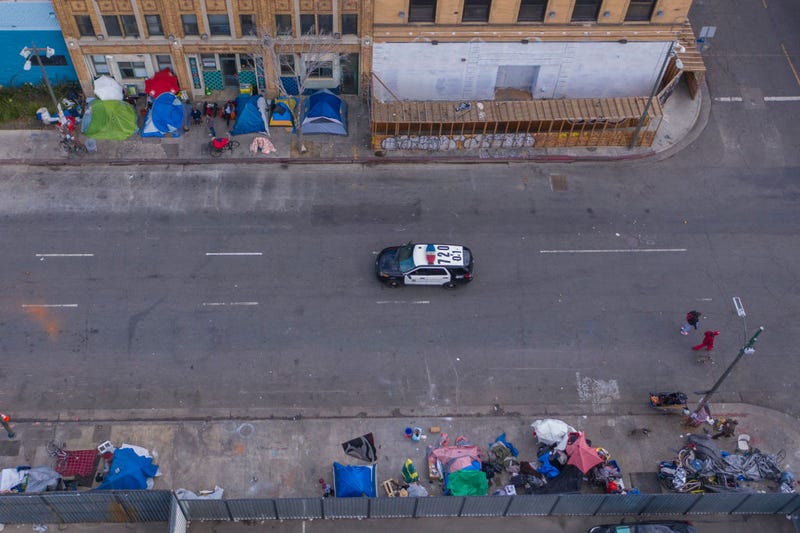
A Court of Appeals for the Ninth Circuit will hear arguments on Wednesday in the legal battle over U.S. District Judge David O. Carter’s order requiring the city and county of Los Angeles to offer to house those living on the streets of Skid Row.
Carter issued his order in response to a suit initiated by a group of downtown residents, business owners and others against the city and county of LA over their handling of the homelessness crisis.
In addition to determining legal standing and constitutional issues, “so much of [the legal case] drilled down to Judge Carter can’t do that. He’s overstepped. These are policy issues that the city and council should be able to decide, not a federal judge.”
The order that Carter issued in April is on hold pending a ruling on the appeal.
“Our response is, of course, he can do that. There's significant Supreme Court authority permitting him to do that. Brown v. Board of Education is the first that comes to mind,” said the plaintiffs' attorney Elizabeth Mitchell.
Mitchell represents the LA Alliance for Human Rights, the coalition that is suing the city and the county seeking immediate action to "solve" the homelessness crisis.
Each side will have 20 minutes to make their case before the judges, which Mitchell says is an unusually long time.
“It indicates how meaty the justices think this issue is,” she said.
Even if the Ninth Circuit overturns his order, Carter will remain on the case. According to Los Angeles Magazine, Carter told the attorneys for the city and the county to “take it up to the Ninth Circuit.”
“But when you do that, regardless of what the Ninth Circuit does, it’s coming back to my court eventually. And the question is: In what form and then how long?”
Carter ruled against the county’s motion for dismissal of the case back in May. At the time, Carter wrote the plaintiffs showed that "at least some degree of government spending has been `unnecessary or useless' in tackling the homelessness problem."
The number of people living on the streets is clearly growing but there's been no count done since before the pandemic.
